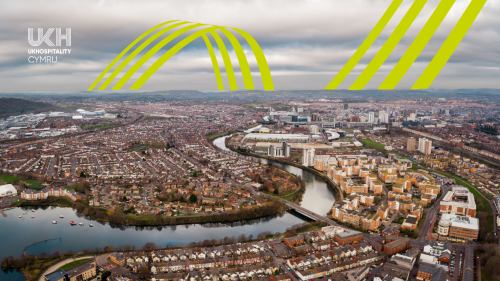Why family-owned hospitality businesses need to start planning for IHT changes
Changes to Inheritance Tax (IHT) business reliefs are set to come into force next April have attracted a lot of controversy for the detrimental impact they will have on family-owned farms.
But recent figures suggest hospitality and leisure businesses could be just as hard hit.
According to our members’ survey 47% of respondents said their business is family-owned, and could therefore be affected by proposed changes to Business Property Relief (BPR).
What is Business Property Relief?
Like the well-publicised Agricultural Property Relief (APR), BPR has long provided an exemption from IHT when business assets are passed on to a family member upon the death of the owner. This has helped to ensure the continuity of family businesses across generations by avoiding punitive tax bills upon inheritance.
At present, BPR provides 100% relief (so no IHT due at all) on business assets held in a sole partnership, partnership or LLP, or in the form of shares in an unquoted trading company. It provides 50% relief when inherited assets come in the form of personally owned land, buildings, machinery or plant, or when a controlling stake in a quoted company is passed down to a family member.
How is BPR changing?
From April 6th 2026, however, the 100% rate of relief will be capped at a lifetime allowance of £1m.
That allowance will apply not only to assets held by the deceased at the time of death, but also to any qualifying assets transferred into trust, and to any gifted to the beneficiary within seven years prior to their death. Once the £1m personal limit has been passed, all subsequent assets that quality under BPR will be subject to 50% IHT relief, or a 20% rate of tax.
How will the changes impact hospitality businesses?
The impact of this could be significant. Imagine, say, a chain of family-owned restaurants valued at £5m. Under the current BPR regime, a sole proprietor would have no concerns leaving his or her entire holding to their son or daughter as there would be no IHT due at all. But from April next year, there would be 100% relief on the first £1m only, and 50% relief on the remaining £4m. That would amount to an IHT bill of £800,000.
When surveyed about the likely impact of these changes to their business planning, half (51%) of affected hospitality business owners said it would lead to reduced investment, while a third (33%) believe it will negatively impact business restructuring. One in five (19%) say it will lead to increased debt.
How can family businesses minimise the impact of BPR changes?
There are steps you can take ahead of the April 6th deadline to soften the blow of any future IHT liability. One important action relates to the fact that the £1m lifetime allowance doubles for married couples, in the same way that the nil rate bands for IHT do. But, both partners have to be listed as owners of the qualifying asset. So by changing the ownership structure to have both partners sharing the asset, you automatically increase the 100% relief ceiling to £2m. Unlike the nil rate band, however, this cannot be passed onto the other partner when one dies – so you have to take joint ownership while both partners are still alive.
Other options include passing on holdings in the business to successors as gifts. As long as the donor lives for seven years after the gift is made, those gifts will be exempt from IHT. Should the beneficiaries subsequently sell or otherwise dispose of their holdings, however, they will have to pay Capital Gains Tax (CGT).
Another route to consider is passing control of the business to successors in a family buy-out. This involves family members forming a new company and taking control via a formal business purchase. In this case, the owners would be liable to pay CGT on the money they receive for their share in the business. But, if they qualify for Business Asset Disposal Relief (BADR), this would be at the reduced rate of 14%. This option suits business owners who are ready to retire and want to take capital out of their business to fund their retirement. The downside is, should they have more than £325,000 (£650,000 for couples) in assets when they pass away post-sale, that would all be subject to 100% IHT, with no relief available.
Finally, there is a narrow window of opportunity to transfer business assets you intend to pass on into a trust before April 6th. This is before the new rules which take assets in trust into consideration as part of the £1m lifetime allowance come into effect. This is worth considering if the value of your business assets is considerably more than £1m.
Final thoughts: a helping hand with your succession plans
In practice, with the changes in BPR coming into effect next year, completely avoiding IHT and/or CGT liability on family business successions involving sizeable assets will no longer be possible. The question then becomes how far you can minimise liabilities through effective estate planning.
What that looks like will be different for every business owner, depending on size, ownership structure, and what your disposal and succession plans are. Are you ready to cede control, and take capital out of the business for retirement? Or do you want to get your holdings below the £1m BPR threshold while retaining operational control?
These are questions that Xeinadin’s business planning and tax specialists can help you answer. Xeinadin pride themselves on helping clients on every step of their journey in business and in personal finance, from beginning to end. Making your family business succession plans tax-efficient will require some careful planning and likely a mix of measures to meet your goals. You tell them about your situation and what you want to achieve, they’ll crunch the numbers and explain your options.
Time is ticking before BPR relief changes, so why not get in touch today to get the ball rolling?






